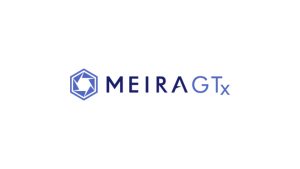Gene therapy developer MeiraGTx has announced a significant financial move, selling its remaining financial interest in an eye-disease treatment developed in partnership with Johnson & Johnson. The deal entails MeiraGTx receiving an upfront payment of $65 million, with the potential for an additional $65 million in the coming year. This strategic decision involves foregoing future sales royalties for the eye-disease treatment.
As part of the deal's terms, MeiraGTx stands to gain up to $285 million more upon Johnson & Johnson's first commercial sales of the gene therapy in the U.S. and Europe. Additional payments are contingent on the successful late-stage testing of the gene therapy for a rare form of vision loss. The collaboration between both the companies dates back to 2019, and the recent financial transaction marks a pivotal moment in their ongoing partnership.
MeiraGTx's financial maneuver, combined with a recent $30 million investment from Sanofi, is anticipated to fund the company through the middle of 2026, supporting the development of its various programs. This announcement led to a notable 22% increase in the company's shares on the day it was announced in late December of 2023.
The collaboration between the two companies has resulted in three gene therapy projects in clinical development. The most advanced of these projects, named "bota-vec," is currently in late-stage testing for X-linked retinitis pigmentosa, a rare inherited condition affecting vision.
For Johnson & Johnson, this deal underscores its commitment to gene therapies for genetic eye diseases. The pharmaceutical giant has already seen success in this area with Roche's Luxturna. Additionally, the company has partnered with Hemera Biosciences, contributing to the development of an experimental treatment for geographic atrophy, a form of age-related vision loss.
The field of gene therapies for ocular disorders has witnessed investments from several major drugmakers, including Novartis, Roche, and Regeneron Pharmaceuticals. The eye's accessibility for genetic medicine makes it a focal point for innovative treatments.
However, the landscape of eye gene therapy research has not been without challenges. Some notable setbacks, such as those experienced by Biogen and Applied Genetic Technologies Corp., highlight the complexities of this area of medical research. Despite setbacks, MeiraGTx's ongoing collaboration with Johnson & Johnson remains a testament to the potential of gene therapies in addressing critical healthcare needs.
Results from the late-stage study of "bota-vec" are anticipated next year, marking a crucial milestone in the journey towards potential regulatory approval. The infusion of funds for MeiraGTx is timely, considering the broader struggles faced by biotech companies in raising capital amid sector pullbacks. With only $63 million in cash, as of September 30, this financial move is instrumental for MeiraGTx's continued operations and advancement in the field of gene therapy.























